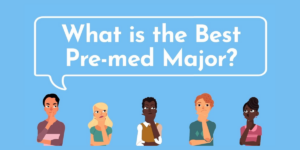Welcome to the journey. You’ve got this.
Congratulations on getting into a top Caribbean medical school! Your journey to becoming a physician is officially underway. As you transition from pre-med to med school, it’s completely normal to feel a mix of excitement, anxiety, and curiosity, especially during the first week of medical school. The first year of medical school is a unique and transformative experience, both intellectually and personally.
If you are in a Caribbean med school, about to start your academic journey, or have aspirations, here are some practical tips to ensure a smooth and successful start to your medical school journey.
1. Adopt a Growth Mindset Early On
Medical school will challenge you in ways you haven’t experienced before. The volume and complexity of the material can be overwhelming at first. Instead of aiming for perfection, focus on making consistent progress. View mistakes as opportunities to learn and recognize that facing challenges is a natural part of the academic journey. A growth mindset will keep you resilient.
2. Refine Your Study Habits
Studying in a Caribbean med school is fundamentally different from college. What worked for you as a pre-med student may no longer be sufficient. The course material is so versatile and you will need different methods of learning to absorb all the information. This means you must be flexible and understand that it’s the right time to refine your study habits and manage your time effectively. Cramming the night before the medical school exam is not the same as cramming a night before an undergraduate exam.
You need to plan out your time and stay on top of your studying. Establish a daily schedule with designated study blocks and breaks. Utilize active learning techniques, such as spaced repetition (Anki), teaching others, and practicing questions, to more effectively absorb medical school information. Avoid passive studying, such as re-reading lecture notes or watching lectures without active engagement, as this strategy won’t be effective.
3. Get Comfortable with Clinical Thinking Early
Even if you’re focusing on basic sciences in your first year, try to link your learning to clinical applications. This helps reinforce memory and prepares you for clinical years. Use resources like Boards and Beyond, First Aid, or Sketchy to integrate basic sciences with board-relevant content. Consider starting USMLE Step 1 prep around the second semester.
4. Take Care of Your Mental and Physical Health
The overload of medical school information and a strict schedule can make you mentally and physically exhausted. Taking care of your well-being is crucial for sustained academic success in the long run. You need to take a brain break after back-to-back lectures to make you feel more energized and ready for a more productive study session. Self-care is essential; don’t feel guilty about it.
Prioritize 7–8 hours of sleep per night. Set aside at least 30 minutes of physical activity a few times a week to boost focus and mood. Maintain a healthy and balanced diet; avoid relying on fast food and sugary drinks. If you feel overwhelmed, consider seeking therapy or counseling support to help you transition successfully. WUSOM offers on-site psychological counseling to help you manage the stress of medical school.
5. Find Your Support System
Surround yourself with peers who motivate you but don’t foster toxic competition. Having friends who understand your experiences can make the hard days more manageable. Forming or joining study groups is a great way to share the workload, compare notes, and discuss complex topics. Many medical schools assign faculty mentors or advisors to guide students throughout their education. These mentors can provide assistance with academic issues, offer career advice, and address personal challenges.
Most medical schools offer free counseling services for students. These can provide a safe and confidential space to discuss mental health issues, whether it’s stress, anxiety, academic burnout, or feelings of isolation. Maintaining connections with family and friends outside of medical school can offer valuable emotional support and stability. They can offer a different perspective on your struggles, remind you of your worth, and help you maintain a sense of balance.
6. Stay Organized
The volume of information and responsibilities can quickly become unmanageable without a sound system. Start using digital tools to stay on top of your studies and become a successful student. Utilize digital calendars, such as Google Calendar or Outlook, to track classes, exams, and personal commitments.
You can also use task manager apps like Todoist, Notion, or Trello to organize daily tasks and study goals. There are many worthy note systems, like Notability or OneNote, that you can use for organizing lecture material.
7. Polish Your Time Management Skills
It’s tempting to study every free moment and memorize a lot of information quickly, but this leads to academic burnout. Learn to set boundaries for study, rest, and leisure. Make a routine and dedicate specific hours for studying, exercise, meals, and rest. Treat medical school like a job; work hard during study hours and truly relax during breaks.
8. Explore and Stay Curious
While it’s too early to commit to a medical specialty, start exploring your interests. Attend student interest group meetings, shadow physicians, or participate in small research projects. Don’t overload yourself in your first semester. Academics come first; there will be time to build your resume later.
9. Get Comfortable with Feedback
You’ll be evaluated frequently, on exams, clinical performance, and communication. Receiving feedback, both constructive and negative, is essential to growth in medicine. Learn to welcome it and reflect without taking it personally.
10. Keep the Big Picture in Mind
During stressful periods, it’s easy to forget why you chose this path. Reflect regularly on your motivation to become a doctor. This long-term perspective can sustain you through the inevitable challenging moments. Journal about your experiences, even just once a week. It helps track your growth and remind you of your purpose.
Final Thoughts
The transition from pre-med to med school is challenging, but you are more capable than you think. You were accepted because you have what it takes, not just academically, but in character and determination. Stay humble, stay curious, and be kind to yourself. You’re not just learning medicine; you’re becoming a physician.







